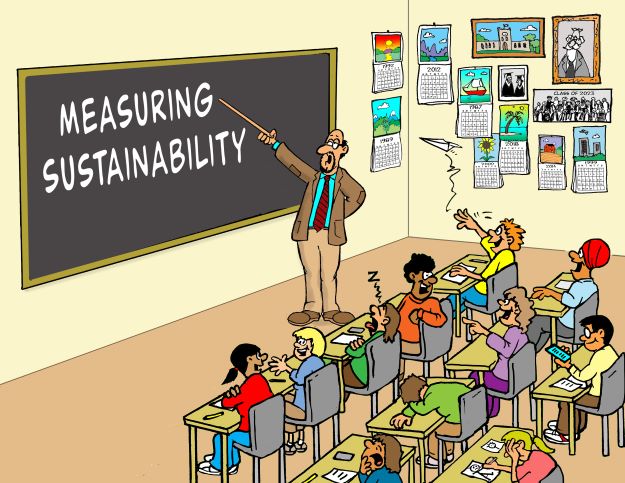The Year of Living – (sort of) Radical Sabbatical Musings on Sustainability
Posted by Daniel Hoornweg on July 01, 2023

One of the best perks of academia is the sabbatical; a year to think and write. The first leave is typically granted after acquiring tenure, and for the (usually) mid-30s academic, this heralds an opportunity to anchor their career with a concentrated block of time to research and publish. For the few academics longer in the tooth and closer to the end of their careers, a first sabbatical, can feel like a test-run for a new phase of life.
But as the peasant cried out to the dead collector in Monty Python’s Holy Grail, “I’m not dead yet,” so perhaps some time to reflect on sustainability is just what the doctor ordered.
For the next year I will try my best to discern where we are on the journey to a sustainable, flourishing planet. Why movement seems so slow despite the clear and urgent warnings, and maybe, what our communities might look like if we do get to sustainability.
One of my first memories of (un)sustainability was driving up to Red Lake, Ontario in 1981 for my summer job as a new geology student. We passed over the Wabigoon River at speed and with windows closed but still gagged on the stink. We quickly pulled over and in disbelief scrambled down to the river bank. Near what was once a beautiful waterfall, I threw a rock in one of the quiet pools of white foam. The rock just stayed there, floating on the filth. More than 60 kilometers downstream from the Dryden paper mill the river was closer to toxic sludge than to water. Surely this was wrong.
I had follow-on work terms looking at the potential of oil shales in Ontario, supervising drilling for gas on Lake Erie, and after graduating from geotechnical engineering, worked in the oil fields of Alberta. When the slow-down hit the oil and gas sector I returned to Ontario and shifted from the economy’s front-end of energy and resources to the back-end of pollution and waste management.
Perhaps even more visceral than a dead river, is a landfill that accepts 6,000 to 10,000 tonnes a day of waste (more than 750 truckloads, or barges, rail cars, even donkey-carts). The waste dumps, landfills and incinerators I worked at in cities like Shanghai, Beijing, Rio de Janeiro, Sao Paulo, Jakarta, Mexico City, Las Vegas, Toronto, New Delhi, Mumbai, Nairobi and even Bermuda and Guelph, can assault our senses as we witness the emerging Anthropocene up-close.
Last month I gave a talk on the history of recycling and waste management to a couple-hundred waste managers. Having handed out Blue Boxes in Guelph with the Girl Guides back in 1987 and having visited waste facilities in more than 300 cities I was keen to discuss some of the history and give shout-outs for Blue Box champions like Nyle Ludolph and Jack McGinnis. But halfway through the rant, I wondered, “Who is this grumpy old man?”
I gave my first public talk at the University of Guelph’s Arboretum in 1988 extolling the virtues of recycling to address climate change. In the intervening time I spent almost 20 years at the World Bank, arguably ground-zero of sustainability-thinking.
Energy and waste are great vantage points to observe sustainability, and lack thereof.
Sustainability can also be captured through Bali’s Rwa Bhineda (balance) where much of the island is wrapped in saput poleng black-and-white cloth. Mutual dualism is a powerful way to view the world. It represents the idea that two opposite things depend on each other to exist; you can’t have day without night, black without white, low without high, joy without sorrow, and so on. Differences must be embraced in order to create harmony and balance. But, much of sustainability also resides in the shades of grey.
People in sustainability these days are shocked. They ask, ”How could so little have been done when the need was so great?”
Ontario Tech’s motto is 'Cogitando et agendo ducemus', 'by thinking and doing, we shall lead.' On the sustainability front, over the last 60 years, our doing was woefully inadequate, and thinking is often drowned out by talking, and far-too-often shouting.
For the next year, I will make an honest effort to think and do sustainability and to write about it here. Please send your opinions, criticisms, hopes and fears. A few of the ideas to be thrashed out include:
- Welcome to the Anthropocene; Sooner than expected. Worse than predicted
- The year of the bicycle extends for a century
- Peak waste, population and podcasts
- Urban vs Rural; Why so grumpy?
- Stroads – how some things should never mix
- Car Wars
- De-couple trumps de-growth
- Can fat people be good environmentalists?
- Good fences make bad citizens
A sabbatical is a tremendous opportunity. Here’s hoping the thinking and doing contributes.
Filed under: Sustainability 101